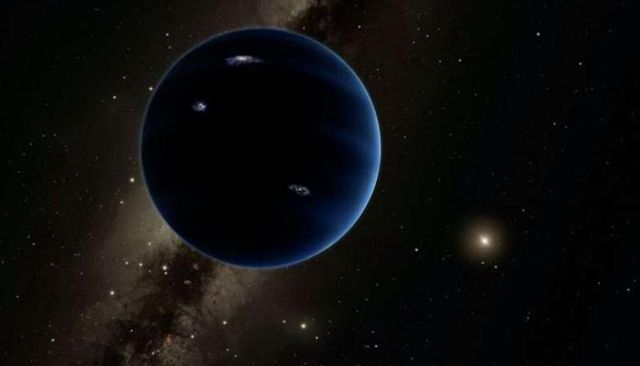Planet 9 .. Scientists resolve a debate that has lasted for years

We have a pretty good idea of what lies inside our solar system, as we know that no Mars-sized planet orbits between Jupiter and Saturn.
But we cannot rule out a smaller and more distant world, such as the hypothetical planet 9, where researchers put high odds of the existence of such a planet, but a recent study published by “arxiv.org” found it less likely.
Many astronomers wondered about the existence of planets that might be hiding at the edge of our solar system, especially when the power of our telescopes was somewhat limited, but when the large surveys of the sky began, they found nothing but asteroid-sized worlds.
But the orbits of the worlds the researchers found seemed to be clustered in a statistically strange way, as if they were gravitationally perturbed by a larger object, and if that were the case, that planet would have a mass of about five terrestrial planets, and an orbital distance of a few hundred to thousands of astronomical units.
Of course, this motivated researchers to search for the world, but this is not easy, Planet 9 would be too far away to be seen with reflected light, so you have to search for it by its faint infrared glow, and with its mass only five from Earth It won't emit much heat.

To search for distant planets, the team used two infrared sky surveys, one from the Infrared Astronomy Satellite (IRAS) and the other from the Akari Space Telescope. A bit from the sky, they assumed any distant planets would be fairly close to the equatorial plane, and then combed through the data noting potential planets.
Surprisingly, they found more than 500 candidates, based on the energy distribution of their spectra, and most of these candidates had orbital distances of less than 1,000 AU, and masses less than Neptune, which is exactly the expected range for Planet 9.
When the team looked at the infrared signatures manually, none of them were convincing, and most of them tended to be either within or near a faint integrated flow nebula, also known as cirrus, which are diffuse clouds of interstellar gas that cannot be seen. Easily at visible wavelengths, but emitting infrared light.
So it turns out that these candidates aren't planets, but echoes of a faint nebula, which pretty much rules out Planet 9.
https://al-ain.com/article/planet-scientists-controversy-lasted

